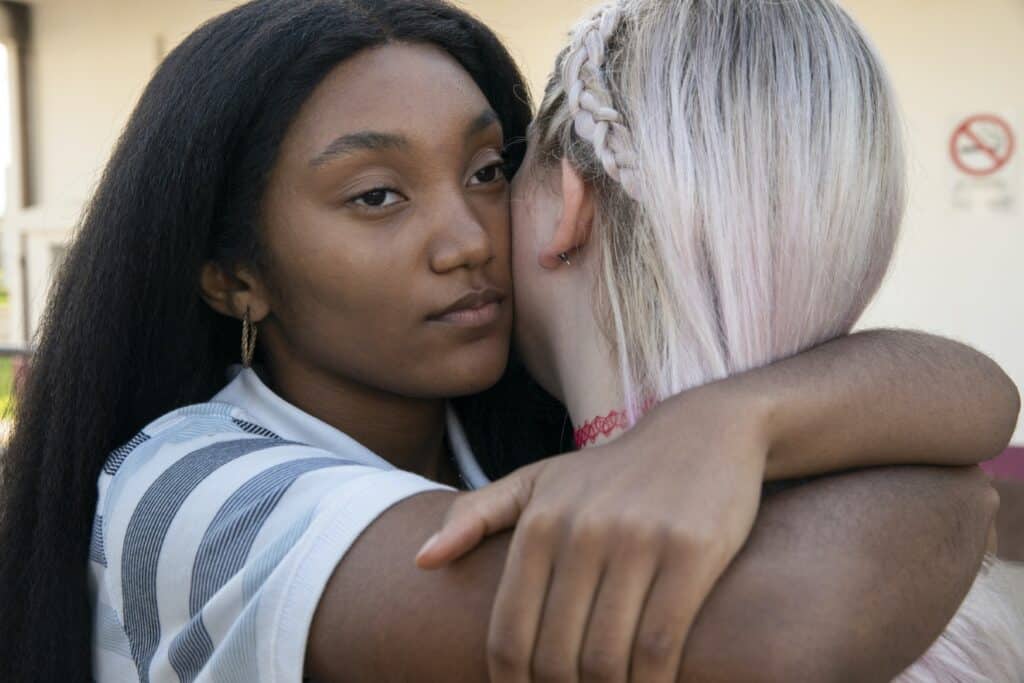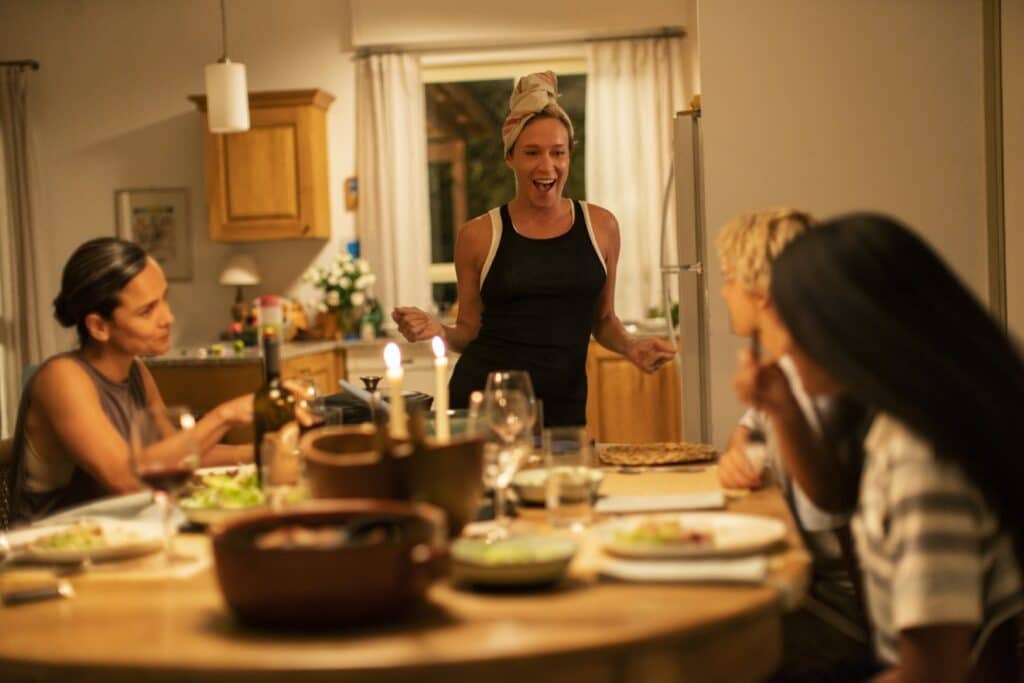Read also:
How to Watch FX Live Without CableHow To Watch AMC Without CableHow to Watch ABC Without CableHow to Watch Paramount Network Without CableLuca Guadagnino turns to TV to tell a lilting, meditative story about the uncertainties of adolescence.
Television often mines the adolescent experience for content. The teenage years are a mix of emotional drama and hormonal passions, coupled with a lack of serious responsibilities. Mix that with the media’s fetishization of the youthful body and you have countless television series about young adults finding their way through life. It’s a lucrative subject, but at this point can anyone say anything new about growing up?
In We Are Who We Are director/writer Luca Guadagnino (Call Me By Your Name) takes the common coming-of-age narrative and injects it with a sense of ambiguity not often found on television. The result is an engaging, if oftentimes challenging, drama about the angst of Generation Z.
The avatar for Gen-Z in this particular story is Fraser Wilson (Jack Dylan Grazer), an army brat transplanted from New York City to Italy when his mother Sarah (Chloë Sevigny) is promoted to commander of the town’s base. The promotion has uprooted Fraser’s life, and that of Sarah’s wife Maggie (Alice Braga), with Fraser pining for a friend he left in New York. Forlorn and impudent, Fraser doesn’t have much desire to befriend the other teens at the base until he meets Caitlin Poythress (Joran Kristine Seamón). Caitlyn is pushing against her established sense of self, and her growing friendship with Fraser helps her explore her identity. But as the pair grow closer, Caitlyn begins to drift away from her old friend group.

It would have been easy to make We Are Who We Are into a typical teenage soap, but Guadagnino resists this by putting less focus on the plot and instead highlighting the emotional states of the characters. Each hour-long episode goes by at a leisurely pace, following the characters as they interact with the people around them. These interactions begin to coalesce into a plot in the third episode, but seeing as HBO only provided the first four episodes for review, I can’t say where they will lead.
While the intense focus on character helps the viewing experience in later episodes, it’s a bit of a weakness in the beginning. The first episode follows Fraser as he explores the base and Chioggia, with nothing of much importance happening outside of showing us who Fraser is. Guadagnino definitely succeeds in introducing us to the main character, but it becomes a bit tedious after thirty minutes, much less an hour.
But once you jump over the first hurdle, We Are Who We Are becomes much more enjoyable as it expands its focus to Caitlyn and her life. The most interesting parts of the show involve her changing relationships with her friends and family, and watching her is more interesting than watching Fraser. This is in part because she has more to do plotwise, but also because of Seamon’s performance. Despite this being her first major role, the young actress imbues Caitlyn with ambivalence and mystery that makes you want to see more of her.
There are no real heroes to root for or villains to boo at; instead, we get real people with complicated relationships.
That isn’t to say that Grazer does a poor job; quite the opposite, he gives his character a feeling of “anti-charm” that makes the lead more compelling than he has any right to be. Fraser is the inversion of the “cool misfit” trope. The teen has great taste in clothes, literature, and music, and has a sensitive streak, but his positives are counterbalanced by some truly repugnant attributes. It’s not uncommon to have a teenage protagonist start out as bratty, but Fraser is also full of vitriol against his surprisingly passive mother — even going so far as to become violent against her. It’s a credit to Grazer that he can make his character watchable even after seeing him act irredeemably.
But our ambivalence to the characters makes We Are Who We Are so fascinating to watch. There are no real heroes to root for or villains to boo at; instead, we get real people with complicated relationships. Whether it’s between Fraser and Sarah (in one scene we see Fraser come to Sarah for comfort shortly after he attacked her) or Caitlyn’s tempestuous relationship with her brother Danny (Spence Moore II) — who feels like she’s always trying to be the center of attention — the difficulties of familial relationships are always engaging to watch.
Likewise, the friendships are just as complicated. Caitlyn’s relationship with Frazer causes her friend group to unravel slowly as her friends feel she is rejecting them. Her best friend Britney (Francesca Scorsese) tries to keep the group together, but with Caitlyn growing more into her identity, she begins to chafe against their idea of who she is. Unlike most teen dramas, which would have major betrayals and romantic entanglements cause the friction, it’s small acts that turn into big fights. This makes the drama feel like a real-life falling out, instead of melodrama.

These intricacies are mirrored in the setting. In the first episode, Fraser claims that “Americans can only be happy in America.” Maggie replies, “But this is America.” The liminal nature of an American base in Italy mirrors the alienation of misfit teens and the show’s time period of the 2016 presidential election, where America was transitioning from the Obama years to the Trump years, is a perfect metaphor for the changes that occur as you grow up. Guadagnino doesn’t beat you over the head with the metaphor, but references to changes and alienation are abundant, and they pair well with the misfit nature of the characters.
Guadagnino wraps these metaphors and intricate relationships in a stylish package. From the twee title cards designed by Nigel Peake to the fantastic score by Dev Hynes (i.e. Blood Orange), to the naturalistic yet beautiful cinematography by Fredrik Wenzel, everything about We Are Who We Are drips cool. At times the scenes of beautiful people wearing beautiful clothes in beautiful locations make it feel like you’re watching a clothing ad. Even when the show sags a bit in the story department and becomes dull to watch, it’s always interesting to look at.
We Are Who We Are whiles away its teenage years in self-discovery on HBO starting September 14th.